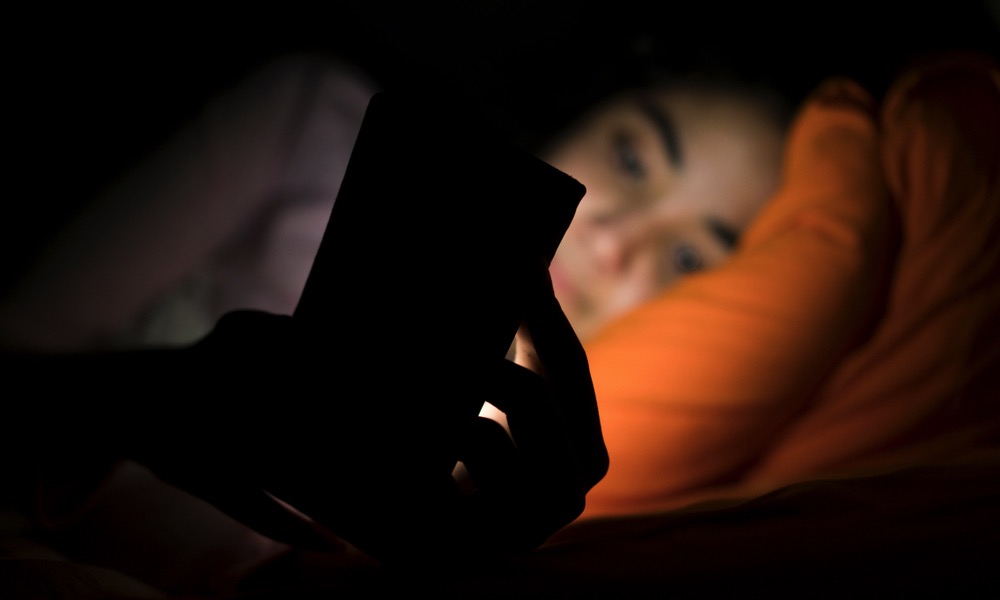New Study Shows ‘Night Shift’ Doesn’t Actually Help You Sleep Better
 Credit: banu sevim / Shutterstock
Credit: banu sevim / Shutterstock
Toggle Dark Mode
If you’ve been paying even the slightest attention to the news around technology and health, you’ve probably heard that blue light can have a negative impact on your sleep. In fact, it’s reached the point where it’s become common knowledge, thanks to studies from Harvard Medical, the University of Toronto, and others, dating back almost ten years.
It’s these studies that prompted Apple to introduced Night Shift mode several years ago in iOS 9.3, a change that was also quickly adopted by several Android handset makers as well. As the name implies, Night Shift mode was intended to warm up the colour of your iPhone screen, thereby cutting back the amount of blue light that you’d be dealing with later at night before bedtime.
The feature proved to be so popular that it also eventually found its way into macOS, and now it’s effectively standard across almost all Apple devices (with the understandable exception of the Apple Watch).
However, a new study from Brigham Young University (BYU), now suggests that this whole idea may have been a myth all along.
Does Night Shift Work?
Unlike the claims about blue light exposure made in the original studies, which mostly relied on measuring melatonin levels and other biomedical factors, BYU decided to take the more practical approach of actually measuring how well people slept after using their smartphones.
As BYU researchers point out, the claims made by the teams at Harvard, U of T, and elsewhere, have been largely theoretical, so they decided that it was time to actually test the theory by doing an actual experiment.
So BYU psychology professor Chad Jensen joined up with researchers from the Cincinnati Children’s Hospital Medical Center to compare the sleep outcomes of individuals in not only two, but three different categories:
- People who used their phone at night with the Night Shift function turned on;
- People who used their phone at night without Night Shift; and
- People who didn’t use a smartphone before bed at all.
The study consisted of 167 “emerging adults” between 18 and 24 years old who use cell phones daily, and the results were surprising, showing that not only is Night Shift largely irrelevant, but it doesn’t even matter if you use your iPhone before bed at all.
In the whole sample, there were no differences across the three groups. Night Shift is not superior to using your phone without Night Shift or even using no phone at all.
Chad Jensen, BYU psychology professor
For the study, participants were required to spend at least eight hours in bed each night, and wear an accelerometer on their wrist to record their sleep activity. The ones who were assigned to use a smartphone also had an app installed which monitored their usage patterns.
Researchers measured not only total sleep duration, but also sleep quality, the time it took to fall asleep, and how soon participants woke up again after falling asleep.
With the results showing no measurable differences between smartphone and non-smartphone users, the team decided to conduct a follow-up experiment, splitting the participants into two separate groups: one which averaged about seven hours of sleep per night, and another that slept less than six hours per night.
In this second run, there was a slight difference among members of the group that got seven hours of sleep, with those who didn’t use a smartphone before bed at all getting a better night’s sleep than those who used a smartphone. Even in this case, however, Night Shift made no difference — it was simply using a phone before bed that caused a poorer sleep.
The six-hour group, however, showed no differences at all, an outcome that Jensen explains as suggesting that “when you are super tired you fall asleep no matter what you did just before bed.”
While there is a lot of evidence suggesting that blue light increases alertness and makes it more difficult to fall asleep, it is important to think about what portion of that stimulation is light emission versus other cognitive and psychological stimulations.
Chad Jensen, BYU psychology professor
Jensen also suggests that some of the evidence that was previously used to conclude that blue light causes sleep problems may have mistaken other aspects of smartphone use before bed that went beyond blue light — especially since most of these studies were done before “Night Shift” and features like it existed at all.
In other words, researchers in the early studies may have conflated the effects of blue light — which definitely do have a measurable biological effect on the body — with the normal cognitive exertion of simply using a smartphone at all before bed, as opposed to engaging in a quieter period with fewer stimuli before falling asleep.






